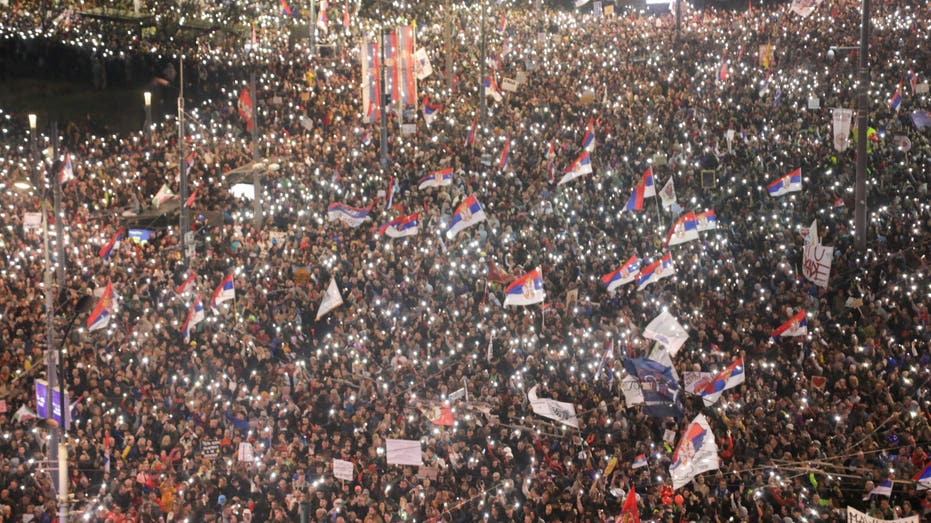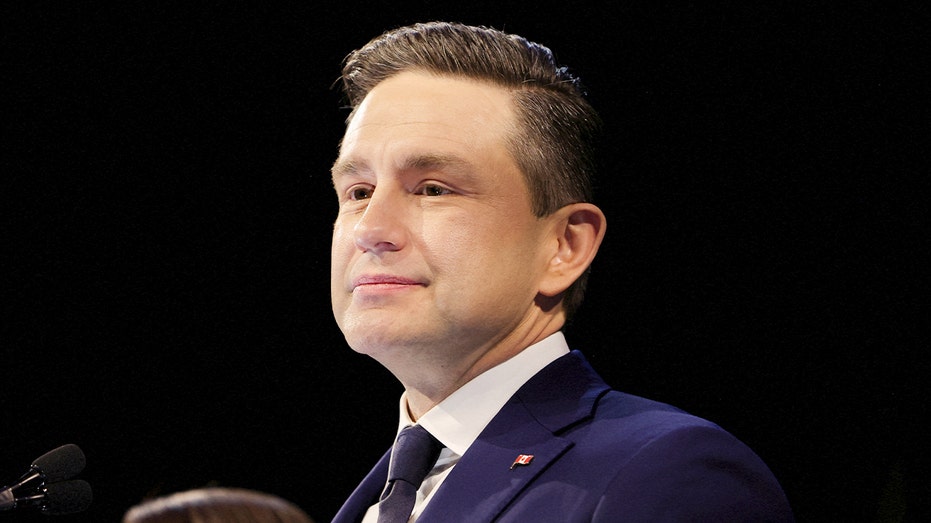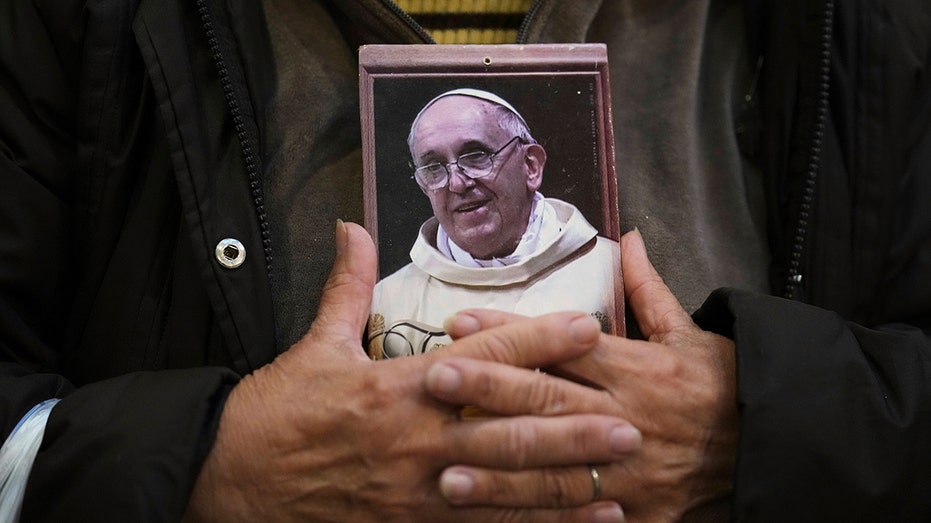Mass Anti-Corruption Protests Shake Serbia, Challenging Vucic's Grip

Sarah Johnson
March 18, 2025
Brief
Massive student-led protests in Serbia challenge President Vucic’s rule, demanding accountability and democracy amid allegations of corruption, Russian influence, and controversial crowd-control tactics.
Serbia is facing its most significant political turmoil in years, as student-led protests challenge the authority of President Aleksandar Vucic, who has maintained a tight grip on power for 14 years. Over 100,000 protesters flooded the streets of Belgrade and other Serbian cities, demanding an end to systemic corruption and government accountability.
On March 15, Belgrade witnessed what could be its largest public demonstration in recent memory, with an estimated 300,000 people marching in the city center. Vucic, known for his close ties to Russia, has refused to step down, instead accusing the protesters of inciting violence and attempting to destabilize the country.
Ivana Stradner, a research fellow at the Foundation for the Defense of Democracies, warned of the potential dangers posed by Serbia's alliance with Russia. "Moscow and Belgrade pledged to combat color revolutions together in 2021. This is dangerous as Russia can provide Serbia with intelligence support," Stradner told Fox News Digital. Despite Vucic's hopes that the protests will die down, they continue to grow.
Vucic has labeled the movement a Western-backed "colored revolution," drawing parallels to Ukraine's 2014 Euromaidan protests, which ousted the pro-Russian president. His government is also accused of deploying illegal crowd-control measures, including long-range acoustic devices (LRADs), during a commemorative silence for victims of the Novi Sad railway collapse in November. Such devices, which can cause severe hearing damage, were allegedly used against peaceful protesters.
The Belgrade Center for Security Policy condemned the use of these devices, labeling it "unlawful and inhumane." Serbia’s foreign minister, Marko Djuric, and President Vucic both denied the allegations, with Vucic calling them "a vile lie" and promising an investigation.
The protests did not emerge overnight but have been building momentum for months. They began in December following the deaths of 15 people in the Novi Sad railway station collapse, a tragedy linked to renovation work by Chinese companies. Initially focused on the government's response to the disaster, the movement has since evolved into a broader critique of corruption and the erosion of democracy under Vucic’s leadership.
Helena Ivanov, a senior fellow at the Henry Jackson Institute, noted that many Serbians view Vucic's government as deeply corrupt and are demanding greater press freedom and accountability. Attempts by the government to quell the unrest, such as arresting individuals involved in corrupt deals and the prime minister's resignation in January, have been dismissed as insufficient.
Critics of the Biden administration’s approach to the Balkans argue that Washington has been too lenient with Vucic's regime, prioritizing Serbia’s role in the Serbia-Kosovo normalization process over addressing its anti-democratic tendencies. A former U.S. diplomat suggested that a tougher stance against Vucic could strengthen America’s position in the region and facilitate peaceful resolutions to ongoing conflicts.
As the protests persist, Serbia is at a crossroads, with its future direction—toward Europe or closer alignment with Russia—hanging in the balance.
Topics
Editor's Comments
It's fascinating how protests can start with a local tragedy and snowball into a nationwide movement against systemic corruption. Vucic's attempt to frame this as a 'colored revolution' feels more like a desperate deflection than a credible accusation. Also, deploying acoustic weapons against peaceful protesters? That's a next-level dystopian move. If this is democracy, Serbia might need to revisit the definition.
Like this article? Share it with your friends!
If you find this article interesting, feel free to share it with your friends!
Thank you for your support! Sharing is the greatest encouragement for us.



